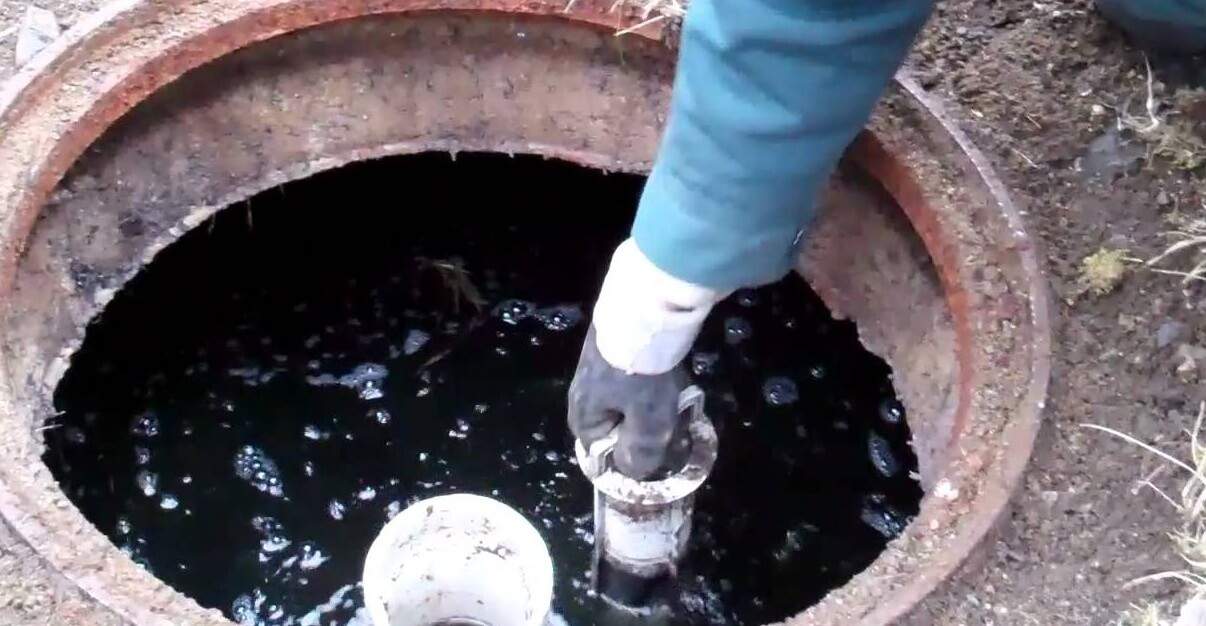Gurgling is a word used to describe the rapid flow of water, exceptionally tiny streams while creating a low sound.
When your septic system talks, it’s essential to pay attention as a homeowner.
It might be warning you of possible problems so you can deal with them before they get out of hand. There are various reasons for septic system interruptions that result in bubbling and gurgling.
Septic tank filling is one of them. An excessively full septic tank is the most prevalent cause of gurgling septic systems.
When your septic tank is overflowing with solids or oil, it inhibits wastewater from flowing properly from the tank to the drain field.

Furthermore, an overfilled tank can cause more severe septic problems, including the collapse of the septic drain field and sewage backup. It’s wise to have your septic system examined before the small glug-glug turns into a disaster.
Full Septic Tank
The garbage that has accumulated in a septic tank must be drained away when it fills up. You should know how to identify whether your septic system is full if you reside in a home with one. There are two warning indicators to look out for:
1. Standing water pools are formed
2. Odors That Aren’t Quite Right Emanate from the Earth
3. Several Drains Slow Down
Let’s get them in detail.
- Standing water pools are formed
A full septic tank is the most frequent cause of water collecting near a sewage tank for no apparent reason. This is especially true if it hasn’t rained recently or if the water includes visible waste.
Sludge from your septic tank may migrate into the drain field’s pipes if it becomes overcrowded with solid waste.
If solid waste clogs these pipes, the drain field will not work properly. When water enters the field, it does not flow through the pipes as it should and instead collects in one spot.
- Odors That Aren’t Quite Right Emanate from the Earth
One way to keep an eye out for a potential problem is to sniff the air around your septic tank and drain field on a frequent basis. The garbage that is disposed of in a septic tank has an unpleasant odor.
It smells horrible since it is full of kitchen rubbish, human waste, and common wastewater. Because the scents are contained inside the system and underground, they are not an issue while the septic system is working properly.
A bad odor around your septic tank and drain field, on the other hand, suggests that gases are escaping from the drain field.
- Several Drains Slow Down
A clog has most likely formed in the pipes immediately connected to that drain when it gets sluggish. The obstruction is not restricted to a single localized place if several drains in your home begin to slow down.
Instead, it has spread throughout your home and might be present in your septic system. The situation will only become worse if the garbage is not removed. In this case, septic tank must be pumped as quickly as possible.
The sound of gurgling sewage pipes isn’t the only clue that anything is wrong with your septic system. There are a few additional plumbing drains that sound to be aware of.
A leak problem might be indicated by trickling water sounds or water leaking noises emanating from a plumbing device in your houses, such as the sink or toilet. Flooding or a septic system backup can potentially create both of these problems.
Maintenance to avoid septic tank fullness:
Your septic system, like any other portion of your home, has to be maintained on a regular basis.
Most homeowners, on the other hand, neglect to examine their septic systems on a regular basis since they can’t see them, out of sight, out of mind.

To ensure that your septic tank is in good working order, have it drained out every two to five years. However, if you have a large family or your septic tank is tiny, you may need to pump it out more frequently.
It’s recommended to hire a professional to keep track of your septic system and do regular inspections. You should think about selecting a reputable septic services business in your area.
The easiest method to keep your septic system from gurgling and causing difficulties is to utilize and maintain it properly.
Save Water
The best thing a homeowner can do to keep their sewage treatment system in good working order is to use less water. A domestic home’s sewage system is intended to handle 50–60 gallons per person each day.
Adding more water than the system’s design load might cause it to fail. Water conservation strategies include the following:
- Install water-saving devices like low-flow shower-heads and toilets, as well as front-loading washers.
- Fix water leaks, including leaky faucets and non-sealing toilet valves.
- Water usage should be spread out. Washing many loads of clothes on a single day, for example, should be avoided, and bathing should be spread out throughout the day.
Carefully plan your landscape.
Because the septic system is hidden in the yard, even seemingly innocuous landscape changes might cause it to fail. Make a note of the system’s placement and proceed with caution while making changes to the property.
The following recommendations will assist you in extending the life of your system:
- Rainwater drainage should be diverted away from the soil absorption system. Downspouts, paved surfaces, and slopes can all supply additional water to the wastewater treatment and dispersion region.
- Pavement, decks, automobiles, heavy equipment, and other solid items should be kept away from the soil absorption system. Heavy things compress the soil and seal off bigger soil pores, limiting the quantity of water that may pass through.
- Do not add any more soil fill to the system. To allow for air penetration, many of the system components are designed to be shallow.
Pumping the Septic Tank and Cleaning the Filter
Septic tanks filter and store particles from sewage, preventing blockage of the soil and other treatment system components.
Solids can slide out of the tank and cause system harm if not maintained on a regular basis.
Include the following in your septic tank upkeep:
- Tank pumping should not be substituted with biological or chemical additions. Additives are unneeded and, in some situations, hazardous since sewage contains sufficient bacteria and enzymes.
- Use waste disposal sparingly. The excess solids fill up the tank, raising maintenance costs and frequency.
- Risers connect the tank holes to the ground surface, making future maintenance easier. They also protect the tank lid from mower damage and allow you to replace cracked lids.
Conclusion:
Some of the issues can be solved with simple home treatments. However, if you lack the necessary abilities and equipment, you may wind up exacerbating the problem rather than resolving it.
Consider contacting a competent specialist to assist you in determining the specific root of the problem and taking the appropriate actions.




